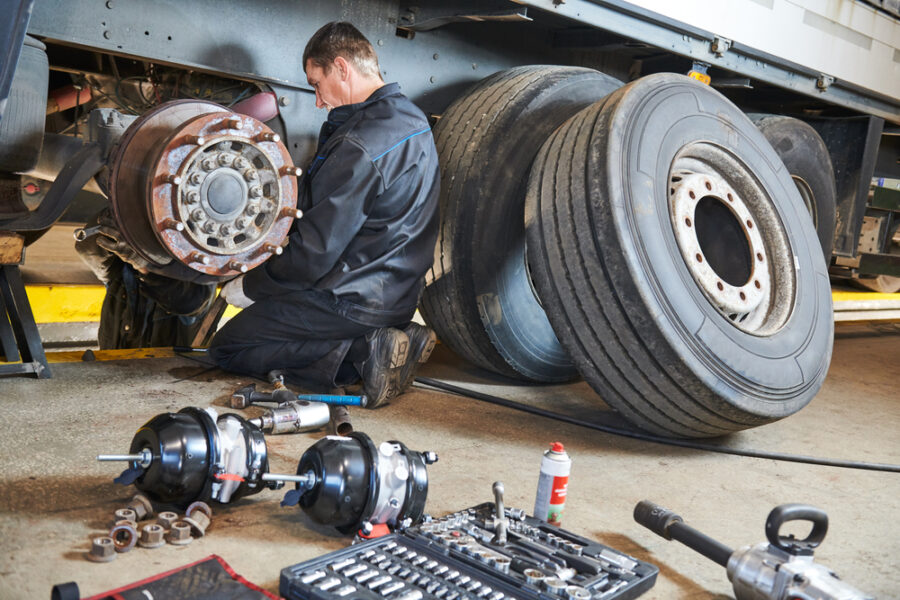Compliance Safety Accountability
The Compliance, Safety, Accountability (CSA) program is an initiative established by the Federal Motor Carrier Safety Administration (FMCSA) in the United States. Its purpose is to enhance safety on the nation’s roadways by identifying and addressing commercial motor vehicle (CMV) companies and drivers who pose a higher risk of accidents.
It was created to prioritize safety, prevent crashes, and encourage motor carriers to maintain high safety standards through targeted interventions, inspections, and enforcement actions. By focusing on areas of concern, the CSA program aims to reduce accidents and save lives on the highways.
What Is a Good CSA Score?
Contrary to what you might expect, a good CSA score is not a high CSA score, it is a low CSA score. A good CSA score indicates that a trucking company has demonstrated a strong commitment to safety, adheres to regulations, and maintains a low number of unsafe driving-related crashes. By consistently prioritizing safety and maintaining a clean record, a trucking company can achieve a good CSA score, instilling confidence in its ability to transport goods safely and efficiently.

Do Drivers Have CSA Scores?
Individual driver safety records are not the same as CSA scores. While companies and carriers are assigned CSA scores, individual drivers are not evaluated separately under this system. The reason behind this is that the CSA program primarily focuses on the overall safety and compliance of motor carriers.
Since drivers typically operate under the authority of a motor carrier, their performance and safety records are primarily associated with the carrier they work for. Therefore, CSA scores are attributed to the carrier rather than the individual driver, allowing for a comprehensive evaluation of the company’s safety practices and performance.
How Drivers Can Use CSA Scores
CSA scores serve as a valuable tool for drivers in several ways. How a company scores can give a driver crucial information about its performance and safety history. By reviewing a company’s CSA scores, drivers can gain insights into its compliance with regulations, past violations, and overall commitment to safety.
This matters for drivers because a company with a solid CSA score indicates a commitment to driver safety, better working conditions, and a reduced risk of encountering compliance issues or safety hazards.
Beyond these benefits, customers also see a company’s CSA scores, meaning companies with better scores will be more likely to haul better loads. This benefits the drivers as they will likely have more loads available to them when driving with a company that has a good score. You will also experience fewer dot audits and roadside inspections when driving with a company that has a safe CSA score, as those companies are considered lower risk to the DOT.
Additionally, drivers can play an active role in improving their company’s CSA score. By adhering to safety protocols, following regulations, and reporting any concerns, drivers contribute to maintaining a positive score.
Behavior Analysis and Safety Improvement Categories (BASIC)
CSA scores measure very specific categories that are often referred to as the behavior analysis and safety improvement categories or BASIC. Any violations of these are reflected on the CSA score for two years before they roll over. We will break these categories down below so you can understand what they are and how you as a driver are affected by them.
Unsafe driving
Unsafe driving measures the avoidable driving hazards like texting, speeding, reckless driving, and distracted driving. Although these are all behaviors of drivers, they reflect on the company.
A company that has appropriate dispatch windows and safety procedures creates an environment where drivers do not need to drive like this. An example of this is having a policy that drivers can only answer the phone using a hands-free device.
As drivers, you can look at this score to get a sense of the expectations that will be placed on you. If a company has a low unsafe driving score you can trust that they most likely value safety.

Crash Indicator
The crash indicator CSA score is the only one that is not publicly available. This is a record of accidents that resulted in the death or injury of a driver or a crash that requires the truck to be transported from the scene. This data is available to the FMCSA and the company involved so that they can investigate the situation.
HOS Compliance
Hours-of-Service or HOS compliance is essential, not just for a CSA score, but for your safety as a driver. These laws were created to protect you as a driver from driving too long of hours and driving fatigued. These laws require you to take a certain number of breaks during the day to ensure you are well-rested on the road.
Not only do you need to take these breaks and follow these laws, but it is also essential to maintain your records of these breaks. You can earn a HOS violation even if you are following the required laws if you are not also maintaining your logs. Historically these were paper logs, but most companies now require you to use an electronic logging device or ELD to track this information. This is a violation that will show on your individual driver safety measurement records for three years as well as the company CSA scores for two years.
Vehicle Maintenance
Earning good scores for vehicle maintenance is a team effort between the company and the driver. As a driver, you are responsible for performing your pre and post-trip inspections as well as reporting any issue with the equipment to your company. It is then your company’s responsibility to ensure that the reported issues are resolved and the truck is in a good and safe condition for the driver.
If a company has a good score in this field then you know as a driver that you will not be running broken-down and poorly maintained equipment. It is also possible that this company has a bonus program to reward safety compliance.

Controlled Substances
According to the FMCSA’s safety measurement system (csa.fmcsa.dot.gov), having containers of alcoholic beverages in your cab, whether open or not, is a violation. These violations stay on your personal safety record for three years and can prevent you from being hired by companies and could cause your current company to terminate your employment. This is a very serious violation to earn and should be treated with the utmost care.
Hazardous materials compliance
Hazardous materials compliance requires a carrier to follow specific rules and regulations due to the increased risk during transportation. In order to stay in hazardous materials compliance with the FMCSA, the load must be properly packaged, marked, labeled, and have the correct placard and loading. There also needs to be the correct testing for the tank including how to load/unload, attendance, and leakage.
At ShipEX we do not haul hazardous materials, so our drivers do not need to worry about staying in compliance with these regulations. As a driver, it is essential to know if the company you are considering hauls hazardous materials as you will need the correct training and endorsements to haul these loads.
Driver Fitness
Driver fitness is not referring to exercise, it is referring to qualifications. You will earn a violation if you do not have a valid and current CDL, medical certificates, state driving records, annual reviews of driving records, and employment application. These are all used with additional safety data to ensure that you are qualified to operate the commercial vehicle.
If a company you are applying to has a poor score for driver fitness that should concern you as a driver. This means that they are not being thorough in their vetting process or they do not keep accurate records, which could hurt your personal safety score as well.

Vehicle Maintenance
Pre-trip and post-trip inspections are essential for enhancing your company’s CSA scores, as they play a vital role in ensuring preparedness on the road and mitigating potential risks and hazards. By conducting these inspections diligently, you not only enhance your safety while driving but also minimize the likelihood of encountering unexpected roadside inspections. Emphasizing these inspections as part of your routine will contribute to improved overall performance and compliance.

ELD Maintenance
As we mentioned earlier, electronic logging devices, or ELDs are required by most companies for their drivers. Having these logs readily available is vital when you do face roadside inspections. By providing these accurate and complete records you can avoid penalties and fines.
Not only will this help you and the company, some companies, like ShipEX, offer compliance bonuses. At ShipEX our drivers have access to this bonus when they do not have any violations and meet the other requirements. If your company offers a similar compliance bonus, keeping accurate logs will help you keep earning it.
Why it Matters
As commercial drivers, you have the ability not only to influence CSA scores but to use those scores to make decisions about a company. Now that you understand the safety measurement system, it can tell you a story about the motor carrier and help you make informed decisions about where you want to drive. By maintaining your safety record you can enjoy all the benefits that come with joining a company that holds an excellent CSA score.
Disclaimer:
This blog post is for informational purposes only. ShipEX makes no warranties about this information’s completeness, reliability, or accuracy. Any action you take upon the information on this website is strictly at your own risk. ShipEX will not be liable for any losses and damages in connection therewith. Furthermore, nothing in this blog alters ShipEX Policies which are subject to change without notice.

